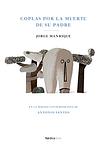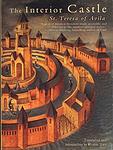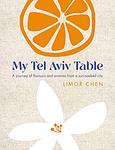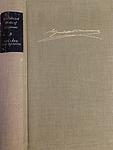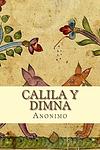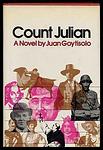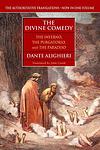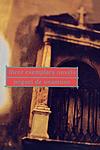The Greatest Italian, Spanish "Allegorical" Books of All Time
Click to learn how this list is calculated.
This list represents a comprehensive and trusted collection of the greatest books. Developed through a specialized algorithm, it brings together 300 'best of' book lists to form a definitive guide to the world's most acclaimed books. For those interested in how these books are chosen, additional details can be found on the rankings page.
Genres
Allegorical books are a genre of literature that use symbolic characters, events, and settings to convey a deeper meaning or message. These stories often have a moral or philosophical lesson that is meant to be interpreted by the reader. Allegories can be found in many different types of literature, including novels, short stories, and poetry. They are a powerful tool for exploring complex ideas and emotions, and can be used to comment on social, political, or religious issues. Overall, allegorical books are a thought-provoking and engaging genre that challenges readers to think critically and reflect on the world around them.
Countries
Date Range
Reading Statistics
Click the button below to see how many of these books you've read!
Download
If you're interested in downloading this list as a CSV file for use in a spreadsheet application, you can easily do so by clicking the button below. Please note that to ensure a manageable file size and faster download, the CSV will include details for only the first 500 books.
Download-
1. The Divine Comedy by Dante Alighieri
In this epic poem, the protagonist embarks on an extraordinary journey through Hell (Inferno), Purgatory (Purgatorio), and Paradise (Paradiso). Guided by the ancient Roman poet Virgil and his beloved Beatrice, he encounters various historical and mythological figures in each realm, witnessing the eternal consequences of earthly sins and virtues. The journey serves as an allegory for the soul's progression towards God, offering profound insights into the nature of good and evil, free will, and divine justice.
The 27th Greatest Book of All Time -
2. Decameron by Giovanni Boccaccio
"Decameron" is a collection of 100 stories told by a group of seven young women and three young men sheltering in a secluded villa just outside Florence to escape the Black Death, which was afflicting the city. The tales, which range from the erotic to the tragic, the hilarious to the instructional, are embedded in a rich framework narrative that provides a detailed portrait of the society of the Italian Renaissance.
The 204th Greatest Book of All Time -
3. If on a Winter's Night a Traveller by Italo Calvino
The novel is a postmodernist narrative that follows the adventures of the reader, who is trying to read a book called "If on a Winter's Night a Traveller." However, the reader keeps encountering obstacles that prevent him from finishing the book, including printer's errors, censorship, and interruptions from other characters. The story is interspersed with the beginnings of ten different novels, each interrupted at a moment of suspense. The book is a meditation on reading, writing, and the nature of narrative itself.
The 270th Greatest Book of All Time -
4. The Tartar Steppe by Dino Buzzati
The novel follows a young officer who spends his entire life waiting for an attack that never comes at a remote desert outpost. The protagonist's life is consumed by the monotonous routine and the fear of the unknown, reflecting on the human condition and the dread of the passage of time. The desert symbolizes the emptiness and futility of life, while the constant anticipation of a foreign invasion that never happens represents the anxiety and fear of death.
The 327th Greatest Book of All Time -
5. Six Characters in Search of an Author by Luigi Pirandello
In this metatheatrical play, six characters come to life and demand that a theater director tell their tragic story, which was left incomplete by their author. As the director and his actors interact with these characters, the boundaries between fiction and reality blur, leading to a philosophical exploration of the nature of human identity, the reliability of art, and the unreliability of perception. The characters' story, involving a complex web of familial relationships, adultery, and suicide, further complicates the narrative, challenging the audience's understanding of truth and illusion.
The 605th Greatest Book of All Time -
6. The Life of Lazarillo de Tormes by Unknown
"The Life of Lazarillo de Tormes" is a novel that follows the life of Lazarillo, a boy of humble origins from Salamanca, Spain, who becomes an apprentice to a series of masters, each representing different aspects of society. The narrative is a critique of the hypocrisy and corruption of the Spanish society of the time, especially the clergy. Lazarillo's experiences and the lessons he learns, often through deception and trickery, serve as a social and moral commentary on the world around him. The novel is considered one of the pioneers of the picaresque genre.
The 754th Greatest Book of All Time -
7. Complete Poems of Giacomo Leopardi by Giacomo Leopardi
This book is a comprehensive collection of the poetic works of a renowned Italian poet. The poems cover a wide range of themes, from love and nature to philosophy and social issues, showcasing the poet's profound understanding of human nature and the world. The collection also includes his celebrated "Canti" and other lesser-known works, all presented in their original Italian language, making it a valuable resource for those interested in Italian literature and culture.
The 836th Greatest Book of All Time -
8. Life Is a Dream by Pedro Calderón de la Barca
"Life is a Dream" is a philosophical allegory regarding the human situation and the mystery of life. The play follows the story of Segismundo, Prince of Poland, who has been imprisoned in a tower by his father, King Basilio, following a dire prophecy that the prince would bring disaster to the country and death to the King. Basilio briefly frees Segismundo but returns him to the tower when the prince proves violent and unruly. The story explores themes of free will, fate, power and the thin line that separates reality from dreams.
The 1181st Greatest Book of All Time -
9. The Marriage Of Cadmus And Harmony by Roberto Calasso
"The Marriage of Cadmus and Harmony" is a unique exploration of Greek mythology. The narrative follows the journey of Cadmus, a Phoenician prince, and his marriage to Harmony, a goddess. The book delves deep into the complex and rich tapestry of Greek myths, presenting them as a continuous and ever-evolving story. It offers fascinating insights into the gods, heroes, and monsters of ancient Greece, while also drawing connections to modern life and thought.
The 1964th Greatest Book of All Time -
10. Coplas por la muerte de su padre by Jorge Manrique
"Coplas por la muerte de su padre" is a collection of elegiac verses written in memory of the author's father. The poems explore themes of mortality, the fleeting nature of life, and the inevitability of death. The author uses his personal grief as a platform to delve into philosophical reflections, ultimately presenting a stoic acceptance of death as a natural part of life. The work is widely regarded as one of the greatest achievements in Spanish poetry.
The 2092nd Greatest Book of All Time -
11. Conversations in Sicily by Elio Vittorini
"Conversations in Sicily" is a semi-autobiographical novel that explores the journey of a man returning to his native Sicily after many years away. The protagonist's journey is both physical and emotional as he reconnects with his past, his culture, and his mother, while also confronting his disillusionment with the political and social realities of the time. The narrative is filled with poetic and philosophical dialogues, providing a deep exploration of Sicilian life, identity, and the human condition.
The 2435th Greatest Book of All Time -
12. The Interior Castle by Teresa of Avila
"The Interior Castle" is a spiritual guide that uses the metaphor of a castle with seven chambers, or 'mansions', to explain the journey of faith. The author describes each mansion as a step closer to God, with the innermost chamber representing union with the divine. The book explores various spiritual concepts such as self-knowledge, detachment, humility, and divine love, providing a roadmap for personal transformation and spiritual growth.
The 2757th Greatest Book of All Time -
13. The City Of The Sun by Tommaso Campanella
"The City of the Sun" is a philosophical work that presents a visionary society where goods, women, and children are held in common. It describes a utopian city governed by a theocratic and philosophical elite, where the inhabitants live harmoniously, dedicating their lives to knowledge, virtue, and the collective well-being. The city is structured with concentric walls adorned with scientific and artistic knowledge, reflecting the society's dedication to intellectual enlightenment and the eradication of ignorance and vice. The work serves as a critique of European society of the time, proposing a radical alternative that emphasizes communal living, education, and the blending of religion and science as the foundations of a just and prosperous community.
The 2758th Greatest Book of All Time -
14. Our Lord Don Quixote by Miguel de Unamuno
The book presents a philosophical and introspective analysis of the classic literary character Don Quixote, delving into the existential and moral dimensions of his adventures. The author reflects on the nature of reality, the importance of ideals, and the interplay between sanity and madness, arguing that Quixote's chivalric quests and his refusal to concede to the limitations of his mundane world embody a profound and heroic affirmation of human imagination and spirit. Through this exploration, the work becomes a meditation on the human condition and the enduring power of fiction to inspire and give life meaning.
The 2770th Greatest Book of All Time -
15. Calila e Dimna by Anonymous
"Calila e Dimna" is a collection of animal fables originally written in Sanskrit and later translated into Arabic and Spanish. The book is composed of moral tales that utilize animals to depict human behavior and teach lessons about life, leadership, and ethics. The stories are told through two jackals, Calila and Dimna, who serve as the king's advisers, and the narratives often revolve around political intrigue, power struggles, and the complexities of court life.
The 2815th Greatest Book of All Time -
16. Guzmán de Alfarache by Mateo Alemán
"Guzmán de Alfarache" is a picaresque novel that follows the life of the protagonist, Guzmán, a rogue who recounts his life story from his humble beginnings to his eventual downfall. Through his narrative, he provides a moralizing commentary on various aspects of Spanish society in the 16th century. The book explores themes of morality, religion, and social criticism, and is considered a precursor to the modern novel.
The 2822nd Greatest Book of All Time -
17. La Nuit obscure by Jean de la Croix
"La Nuit obscure" is a profound spiritual poem that explores the journey of the soul from its bodily home to its union with God. The author uses the metaphor of a dark night to represent the hardships and struggles the soul endures in its quest for divine love and ultimate spiritual enlightenment. The poem is a guide for spiritual growth, encouraging individuals to seek purification and detachment from worldly desires in order to achieve a deeper, more intimate relationship with God.
The 3081st Greatest Book of All Time -
18. The Cloven Viscount by Italo Calvino
This novel tells the story of a viscount who, after being split in two by a cannonball during a battle, survives as two separate halves: one purely evil and the other purely good. These two halves return to their homeland where they lead drastically different lives, reflecting the dual nature of humanity and the complexities of moral absolutism. The narrative explores themes of identity, morality, and the struggle to find a balance between opposing aspects of one's nature. Through its fantastical and allegorical approach, the story delves into the consequences of division and the possibility of reconciliation, both within an individual and within society.
The 3215th Greatest Book of All Time -
19. Fontamara by Ignazio Silone
This novel is set in a small, impoverished village in Italy during the Fascist regime. It tells the story of the villagers, known as "Fontamaresi," who are struggling to survive under the oppressive government policies and the exploitation by the local elite. The narrative focuses on their attempts to resist and fight back against the injustices they face, despite the overwhelming odds. Through the eyes of its characters, the book explores themes of poverty, oppression, resistance, and the human spirit's resilience. It is a poignant critique of Fascism and a testament to the strength of community and solidarity in the face of tyranny.
The 3224th Greatest Book of All Time -
20. Count Julian by Juan Goytisolo
"Count Julian" is a novel that explores the themes of betrayal, revenge, and cultural identity. The protagonist, an exiled Spaniard, reflects on the history of his homeland, Spain, and its past conquests and losses. He identifies with Count Julian, a historical figure who invited the Moors to invade Spain as an act of revenge against the Visigothic King Roderic. The narrative is a critique of Spanish nationalism and cultural identity, as the protagonist dreams of a new invasion to cleanse Spain of its past and present sins. The book's complex narrative structure, nonlinear timeline, and poetic language make it a challenging but rewarding read.
The 3782nd Greatest Book of All Time -
21. La Saga/ Fuga de J. B./ The Saga/ Escape of J.B. by Gonzalo Torrente Ballester
"La Saga/ Fuga de J. B./ The Saga/ Escape of J.B." is a complex narrative that explores the themes of reality and fiction, and their intersection. The story revolves around a mysterious character, J.B., who escapes from a novel into the real world. As he navigates this new realm, the boundaries between the fictional world he came from and the reality he now inhabits become increasingly blurred, leading to a surreal and thought-provoking exploration of the nature of existence.
The 3782nd Greatest Book of All Time -
22. Jerusalem Delivered by Torquato Tasso
The epic poem unfolds during the First Crusade, depicting Christian knights led by Godfrey of Bouillon as they lay siege to Jerusalem, aiming to recapture the holy city from Muslim control. The narrative weaves together themes of love, valor, and chivalry, with a cast of characters that includes the brave knight Rinaldo and the enchanting sorceress Armida. As the warriors confront various supernatural and earthly challenges, the poem explores the conflict between Christian duty and personal passion, ultimately celebrating the virtues of heroism and piety in the quest for divine providence and the triumph of Christian faith.
The 4143rd Greatest Book of All Time -
23. The Inferno by Dante Alighieri
The book is an epic poem that takes the reader on a profound journey through the nine circles of Hell, guided by the ancient Roman poet Virgil. The narrative follows the author's alter ego as he embarks on a quest for salvation, encountering the souls of the damned and witnessing the divine justice meted out for their earthly sins. The vivid and often harrowing depictions of the torments suffered by the inhabitants of the underworld serve as an allegory for the spiritual trials that individuals must overcome. This journey is not only a personal one but also represents the soul's path towards God, exploring themes of morality, redemption, and the nature of sin.
The 4669th Greatest Book of All Time -
24. Three Exemplary Novels by Miguel de Unamuno
"Three Exemplary Novels" is a collection of three distinct stories that delve into the psychological and moral complexities of human life. Each narrative explores themes of existentialism, faith, and identity through the lives of its characters, who face pivotal moral dilemmas and introspective journeys. The author weaves a rich tapestry of emotion and thought, challenging readers to question the nature of reality, the struggle for authenticity, and the search for meaning in a world fraught with contradiction and paradox. The novellas serve as a profound reflection on the human condition, offering a blend of philosophical insight and poignant storytelling.
The 7152nd Greatest Book of All Time -
25. Visions by Francisco de Quevedo
"Visions" is a satirical work that delves into the moral and social decay of Spanish society during the Baroque period. Through a series of allegorical and fantastical visions, the author exposes the vices and follies of various social classes and professions. With sharp wit and a critical eye, the text presents a series of dreamlike scenarios where the dead reveal the hypocrisy, corruption, and pretensions of the living. The work is known for its dark humor, rich language, and the use of grotesque imagery to critique the moral shortcomings of humanity, reflecting the author's disillusionment with the world around him.
The 7152nd Greatest Book of All Time
Reading Statistics
Click the button below to see how many of these books you've read!
Download
If you're interested in downloading this list as a CSV file for use in a spreadsheet application, you can easily do so by clicking the button below. Please note that to ensure a manageable file size and faster download, the CSV will include details for only the first 500 books.
Download








